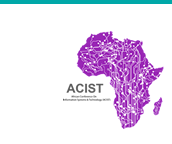Location
Harare, Zimbabwe and Virtual
Start Date
13-9-2024 11:25 AM
End Date
13-9-2024 11:50 AM
Description
Artificial Intelligence in Education (AIED) has significant potential in terms of improving the learning and teaching experience. Despite the benefits that AI applications provide, Generative AI (GAI) has catalyzed global attention and fostered concern in the educational domain, especially in relation to ethical issues. The literature on the topic to date points to a need to better understand the parameters of responsible use of GAI in higher education. This is important, since universities are grappling with how this new technology could be appropriately integrated into the practice of teaching and learning as opposed to an initial reaction of concern. Although the incorporation of GAI into higher education offers opportunities for educational advancement, doing so also necessitates an understanding of its ethical implications and a robust framework for its ethical and responsible use aligned with norms of scholarly practice. This paper, therefore, explores the current state of AI in Higher education and discusses the ethical challenges of integrating it into teaching and learning environments. Drawing upon the Activity Theory and Affordance Theory, this paper concludes by proposing a conceptual framework to serve as a starting point to assist institutions in understanding how to integrate generative AI applications in teaching and learning contexts.
Towards an Ethical Framework for Artificial Intelligence Applications in Higher Education Teaching and Learning: A Conceptual Paper
Harare, Zimbabwe and Virtual
Artificial Intelligence in Education (AIED) has significant potential in terms of improving the learning and teaching experience. Despite the benefits that AI applications provide, Generative AI (GAI) has catalyzed global attention and fostered concern in the educational domain, especially in relation to ethical issues. The literature on the topic to date points to a need to better understand the parameters of responsible use of GAI in higher education. This is important, since universities are grappling with how this new technology could be appropriately integrated into the practice of teaching and learning as opposed to an initial reaction of concern. Although the incorporation of GAI into higher education offers opportunities for educational advancement, doing so also necessitates an understanding of its ethical implications and a robust framework for its ethical and responsible use aligned with norms of scholarly practice. This paper, therefore, explores the current state of AI in Higher education and discusses the ethical challenges of integrating it into teaching and learning environments. Drawing upon the Activity Theory and Affordance Theory, this paper concludes by proposing a conceptual framework to serve as a starting point to assist institutions in understanding how to integrate generative AI applications in teaching and learning contexts.



